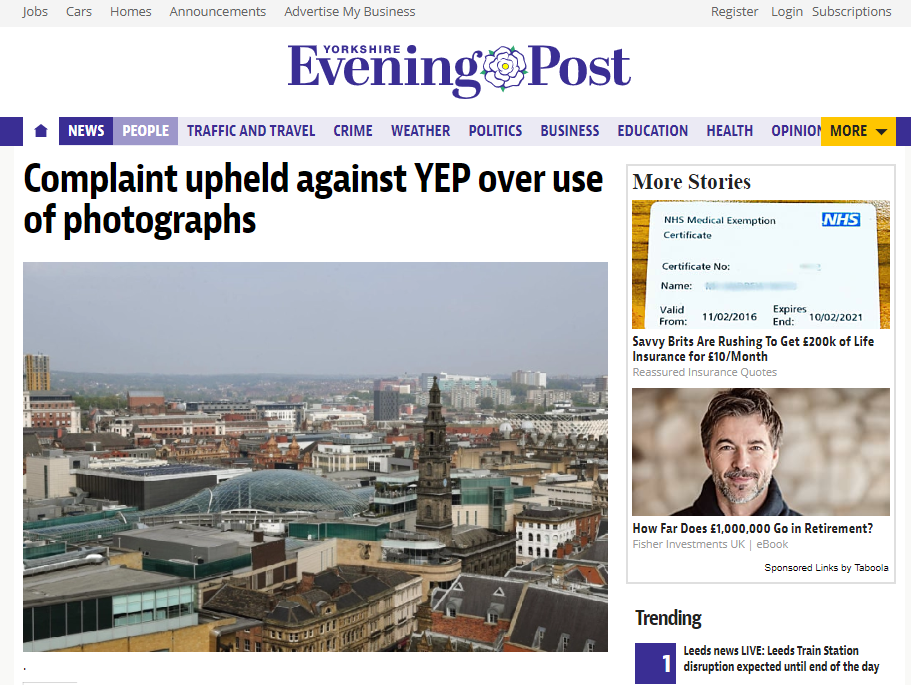
The Yorkshire Evening Post breached the Editors’ Code of Practice by publishing photos of of a mother and her children following the woman’s death, despite having been sent the images by her partner.
The Independent Press Standards Organisation ruled that the article, which was trailed on the newspaper’s front page and published in full on page three and online on 9 March, breached Clause 6 (children) of the code.
The article, headlined: “Fundraiser for the family of ‘amazing’ Alexis,” reported on a fundraising event being organised in memory of a local woman who had recently died of cancer.
Two un-pixelated photos of the woman and her two children accompanied the article, one showing them together in a swimming pool and the other with the kids in fancy dress. Their first names and ages were also included.
The children’s father, who was separated from the mother, complained the photographs had been published without his consent and that the article’s publication had been “very distressing” for his family.
The children were approached by other pupils at their school about what had happened after the story was published, he added.
The Yorkshire Evening Post, which is owned by JPI Media, apologised for any distress caused but said it had been contacted by the children’s grandmother to raise awareness of the fundraising event.
It said its journalist had asked whether she could provide any photos of the children, and she had directed them to her late daughter’s partner, not the father of the children, who provided the images.
The newspaper told IPSO the photos were “published in good faith with the intention of helping raise awareness of the fundraising effort”.
It added that modern families are “complicated” and it had “no reason to believe that the person who provided the photographs was not in a position to consent to their publication”, according to the IPSO ruling.
The Evening Post added that the photos were not on an issue relating to the children’s welfare and that neither the images nor the article revealed anything private about them.
In its ruling, IPSO said that although the paper had intended to publish a positive article to raise awareness of the woman’s illness and the fundraising efforts, it was still required to take Clause 6 (children) of the code into account.
The clause states children under 16 “must not be interviewed or photographed on issues involving their own or another child’s welfare unless a custodial parent or similarly responsible adult consents”.
Neither the grandmother nor her daughter’s partner were able to give the consent of a custodial parent, IPSO said.
“The article was about the death of the children’s mother, which was an issue which related to their welfare,” the regulator added.
“The committee acknowledged that it may not always be possible to know who has parental responsibility for a child, and that the reporter had been acting in good faith in assuming that the people who provided the photographs were in a position to consent to their publication.
“However, the reporter had made no enquiries as to whether either of those adults had parental responsibility for the children.”
Publishing photos of the children without their father’s consent was therefore ruled to be a breach of Clause 6 of the code and the newspaper was ordered to publish a correction on page three or further forward and online.
The father also claimed the article breached Clause 2 (privacy) of the Editors’ Code, but IPSO said the fact and date of the woman’s death was not private information and that her friend and partner were entitled to speak about what happened under their right to freedom of expression.
Read the full IPSO ruling here.
Email pged@pressgazette.co.uk to point out mistakes, provide story tips or send in a letter for publication on our "Letters Page" blog
